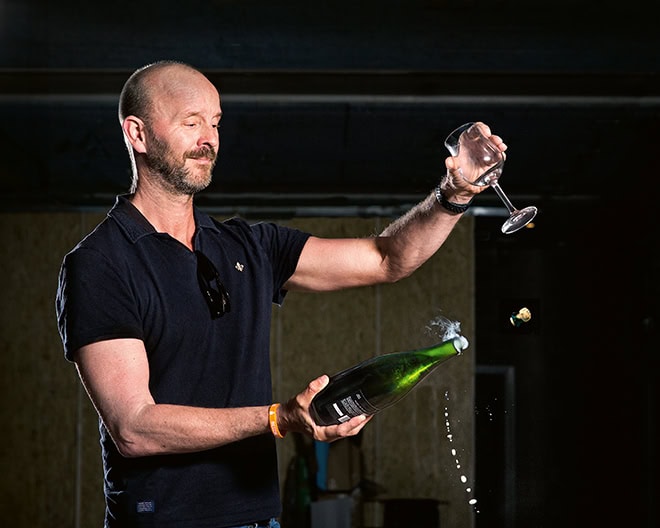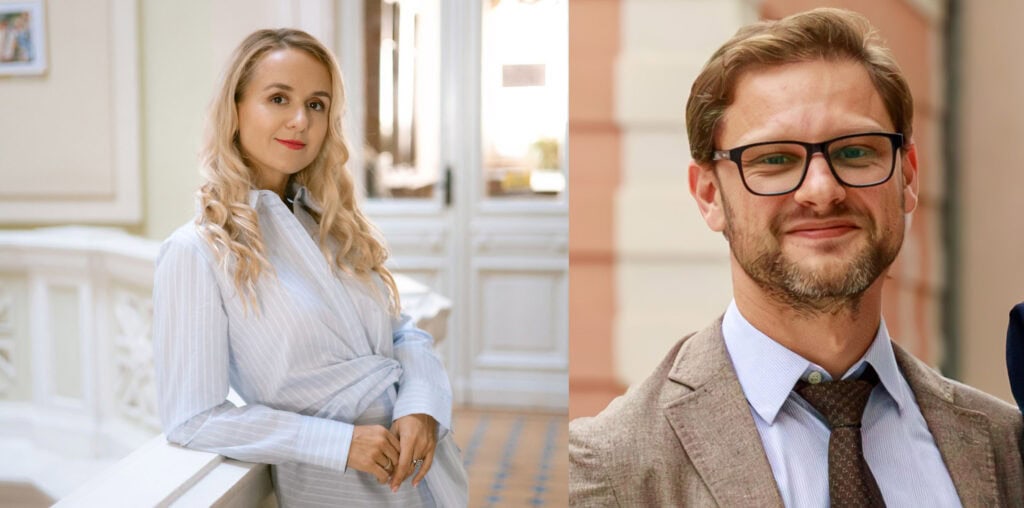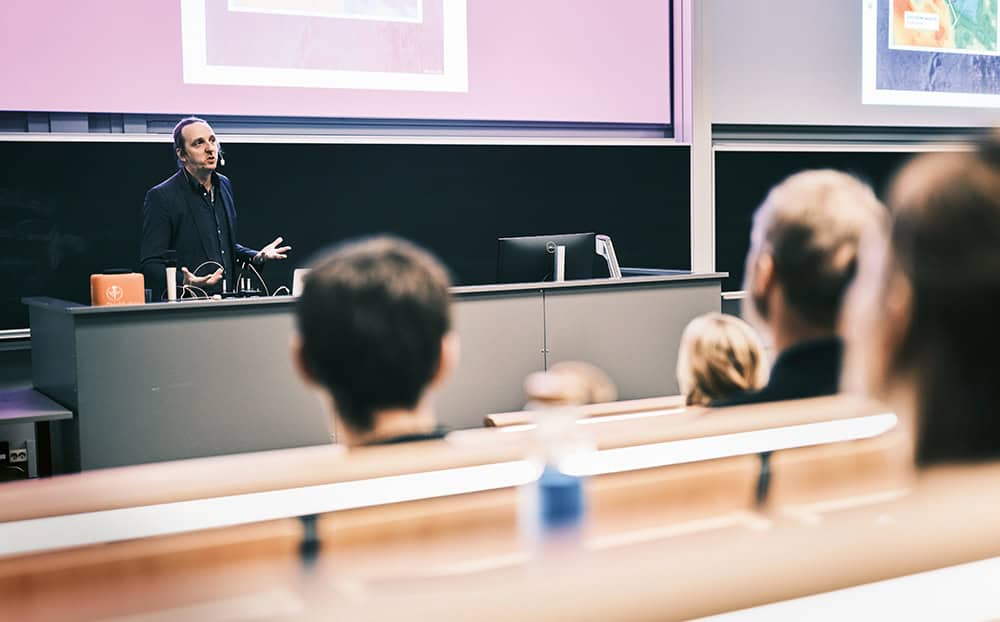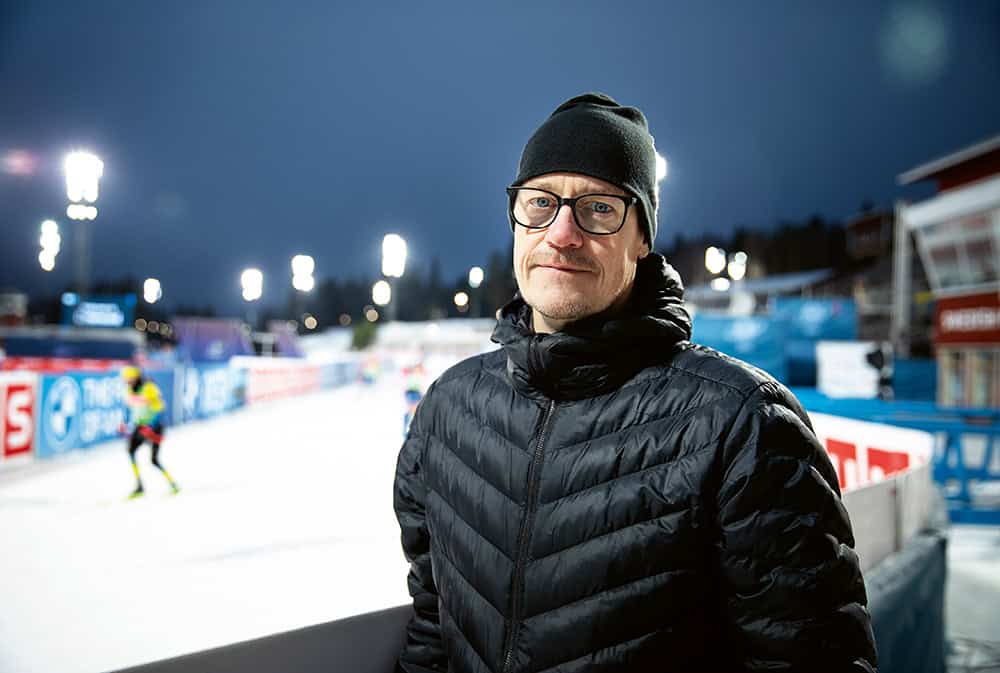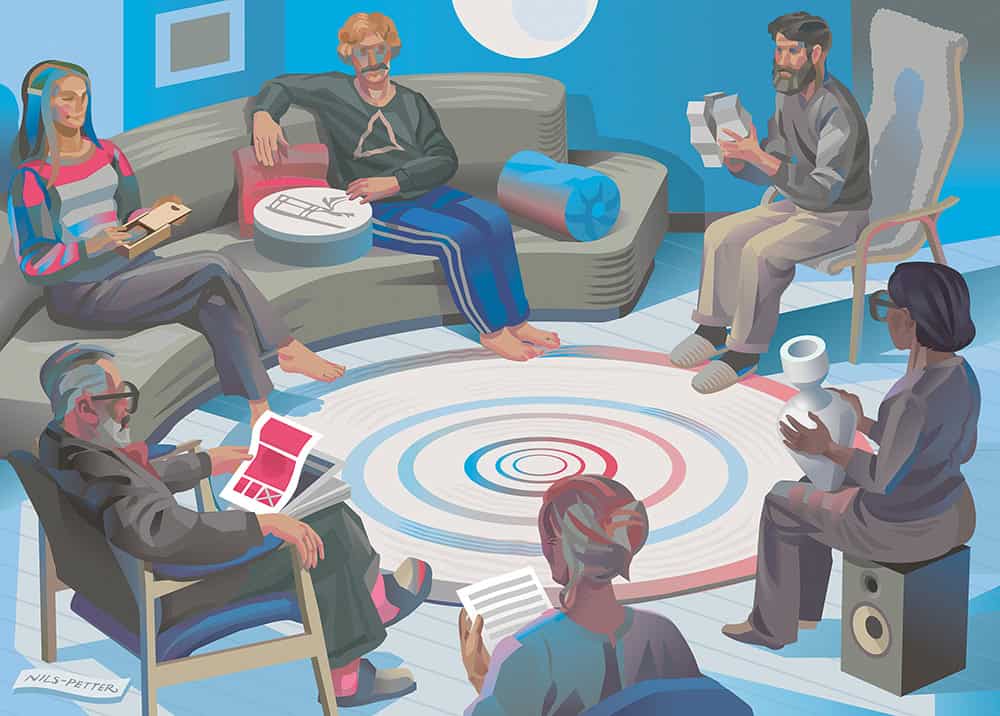Henrik Scander is one of the few people in Sweden who has a doctorate in food and beverage combinations and also has a background as a sommelier. He says this has made him an expert at enjoying the good things in life.
“I’m probably one of the best in the world at indulgence,” he says. “I’ve been kind of educated to indulge.”
That indulgence might be a carefully selected wine for dinner, but it can also be as simple as taking out the fine china for everyday use or drinking water from a crystal glass after one of his many runs.
He had originally intended to become a French teacher. It didn’t turn out that way at all, but a move to France in 1997 was a decisive step for Henrik Scander’s career path and future life. He had been working as a waiter at various restaurants in Gothenburg before going to Aix-en-Provence in France, where he studied French and lived with a French family for six months.
When he returned to Sweden, he began training to become a French teacher at Karlstad University, but it didn’t feel right.
“Studying wasn’t much fun, and I thought it was really boring compared with living in France,” he says, so he left the course and started working in restaurants in Gothenburg again.
A meeting with a newly employed head chef was a turning point, when they both started tasting wine together. Scander felt that he learned quickly and benefited from his knowledge of French. “Then I decided that I needed to make a choice in life and get a proper education, because I really wanted to become the best sommelier in Sweden.”
He moved to Grythyttan to study food and drink in the field of meal science, and there he stayed. He lives and works in the small Västmanland town, which is strongly associated with gastronomy. Universitetsläraren meets Henrik Scander outside Grythyttan Gästgivaregård, a hotel and restaurant that dates back to the 17th century and has been listed in the White Guide for several years.
The sun shines on the red wooden buildings and the gravelled outdoor dining area, which boasts well-known garden furniture from the Grythyttan steelworks, also an institution in the town. In the dining room inside, oil-painted gentlemen in old portraits look down on the lunch guests at the white-clothed tables.
If teacher training felt boring, Henrik Scander’s experience was almost the exact opposite when he began studying at the School of Hospitality, Culinary Arts and Meal Science. He found the studies easy and he enjoyed meeting like-minded people. Immediately after graduation, he started working as a lecturer on beverages.
So instead of becoming Sweden’s best sommelier, Henrik Scander’s career path took yet another turn, this time into the academic world. Alongside his work at the university, he had started a company, where he lectured on wine, among other things.
On one occasion, he was booked by an accounting firm to sabre champagne.
“It was at a time when sabring was all the rage, and they hired me as a fun activity,” he explains. “I remember saying that the important thing to remember is that it has to be champagne and that it must be cold, because then the glass breaks more easily. And then someone watching said ‘this stuff about cold and breaking the glass, what do you mean?’”
Scander replied that it is important that the bottle is cold because that changes the breakage structure of the glass, that there is a greater risk of explosion if the bottle is warm. But the other person didn’t back down and insisted that the temperature makes no difference.
He turned out to be a colleague, Fredrik Thuvander, a professor of materials technology at Karlstad and Örebro universities. He suggested that they combine his technical knowledge with Scander’s proven experience. The result was a master’s thesis in the art of sabring champagne.
“We built a sabring robot, or a sabring guillotine as we called it, with a pendulum that could hit the bottle in exactly the same way as I hit it. We used a high-speed camera to film me to see what angles and speeds I hit the bottle at, and then we were able to mimic that.”
Parallel to the empirical studies, Scander conducted interviews and the two methods were combined in his thesis work.
“It gave me a fascination with science,” he says, and it led him further into doctoral studies.
In 2019, Henrik Scander defended his doctoral thesis Food and beverage combinations: Sommeliers’ perspectives and consumer patterns in Sweden.
The different aspects of his background have led him to also become involved in work outside Campus Grythyttan.
“I have had the privilege of being involved in many projects, and I have also been somewhat in demand with the specialist skills I have. I was invited to a participate in a project at Kristianstad University, about how sturgeon caviar can be paired with champagne, or actually Swedish-produced wine. It is precisely the field of combining flavours that is my speciality, so it is great to be invited, even though I am quite new to research.”
Scander says that he sometimes has to defend his field of study, and he can look at it with a certain amount of detachment.
“It’s kind of luxuary research sometimes. If I tell someone that we are going to study how caviar and sparkling wine from Sweden can taste better, it is not a huge social problem if you put it that way, that this is a challenge on a par with cancer and suchlike.”
At the same time, he emphasises that the subject as a whole has had a rapid impact on public health measures. Meal science became a research topic in Sweden as recently as 20 years ago. Before that, people had not investigated scientifically how to combine flavours, he says.
The field includes studies about how to make hospital meals more appetising, for example. Sometimes it’s not the taste of the food that’s the problem, but the way it is served.
The same reasoning can be applied to school lunches, where Scander is involved in a project where the researchers have a dialogue with pupils at a school in Gothenburg about what kind of food they want.
“Then we cook with our students and take that food to the school. And then we ask the pupils if they like it. If they answer no, we ask how they would prefer it. We are creating this process between the pupils and our chefs, who will learn to cook food that the children want to eat. It is not a problem to prepare nutritious food for the children. The problem is that they don’t eat the school food. So how can we get them to eat food that is actually wholesome, healthy and sustainable?”
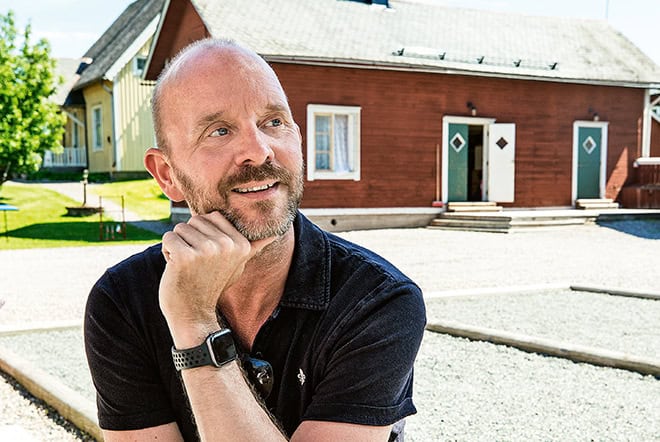
A completely different research project on the starting blocks is about Swedish fika culture. Together with a researcher in marketing and one in destination building, Scander has started to study fika as cultural heritage and how it could be used in marketing.
“We want to study whether Sweden can become a coffee destination. We use the term Swedish fika, which is starting to become known around the world and many people use it.”
Among the courses Henrik Scander teaches are wine tasting methodology and introductory courses for new students.
“When the students come here and start to study beverages, I can base the teaching directly on research. Then I am also involved in deciding who will come and give lectures and which wines we will bring in.”
One problem in his teaching can be finding affordable textbooks.
“If it is a course about beer, the students can buy the big encyclopaedia of beer, but that costs 1,500 Swedish kronor. And then they will have one for calvados and one for whiskey…”
Henrik Scander decided to write his own book about beer, together with a restaurateur and a brewer. The result was the book Ölkunskap genom teori, provning och kombinationer, (Beer science through theory, tasting and combinations), intended as a textbook for students, based on proven experience and science.
As a sideline, he holds wine tastings, an area where he sees opportunities for improvement. He wants to be able to say more than that a wine tastes like raspberries, strawberries or blueberries.
“I think it’s fun to work with analogies and metaphors. If we think of a meal as a football match, which of the wines is Zlatan? Which wine is more like a goalkeeper that holds everything together?”
He brings the same reasoning to education.
“We work with a dialogue method that a colleague has developed. Then we read literature, for example when Marcel Proust drinks linden blossom tea and eats madeleines and metaphorically drifts off to his childhood because he smells these scents. We work quite a lot on if we taste this, where do our thoughts go?”
An important aspect of food and drink that Henrik Scander likes to highlight is that it should be healthy. He follows the motto ‘you are what you eat’ and makes sure that he eats a varied diet. He is very aware of quality and sustainability and tries to avoid processed food.
“If I eat meat, I want that meat to be of high quality. I want it to be from free range, free grazing cattle. That is good for the environment. If I eat fish, I want it to contain good fats. When I buy vegetables, they are not processed but as fresh as possible, or frozen for that matter.”
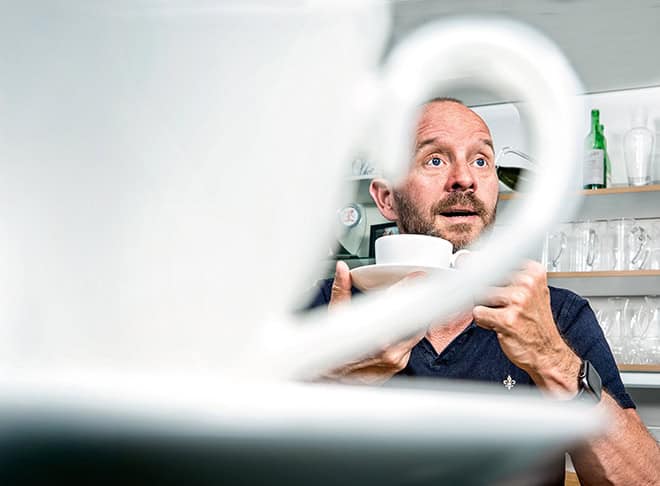
And then there is the importance of enjoyment, of indulgence. In order to be able to treat himself, Scander strives to work hard between his indulgences and follows what he calls the 80-20 model.
“I think it is very simple. Stick to making 80 per cent good choices. And then 20 per cent, you don’t give a damn about making good choices. Treat yourself – and enjoy treating yourself. If you do, I think you really enjoy drinking wine or having a beer or eating princess cake. It’s absolutely delicious, I love princess cake. But I can’t have princess cake every day.”
Henrik Scander…
…48, is a senior lecturer in meal science at the School of Hospitality, Culinary Arts and Meal Science in Grythyttan, where he himself was educated.
He has a background as a sommelier and teaches and researches mainly in beverages and beverage tasting. Campus Grythyttan is part of Örebro University, where Henrik Scander is also master of ceremonies, which means that he hosts the annual academic celebrations.
He writes a regular popular science column in the local newspaper, Nerikes Allehanda, and leads wine tastings alongside his work at the university. In his spare time, he practises triathlon.
